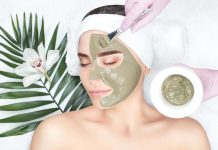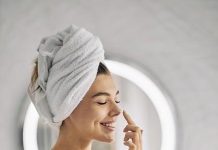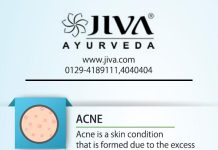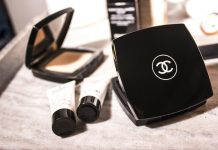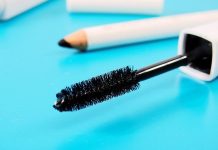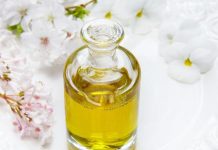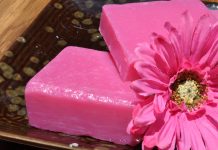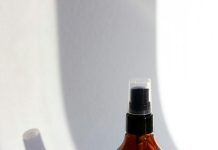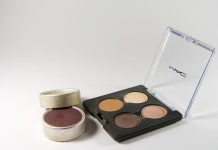In the vast and colorful world of beauty products, a silent debate bubbles beneath the surface—should consumers steer clear of parabens and sulfates? These common ingredients, found in everything from shampoos to moisturizers, have sparked discussions among beauty enthusiasts and experts alike. Are they the hidden culprits behind potential health risks, or misunderstood components with undeserved reputations? As we delve into the science and the stories, we aim to unravel the truth behind these controversial compounds, guiding you through the maze of modern skincare choices. Join us as we explore whether parabens and sulfates are friends or foes in your beauty regimen.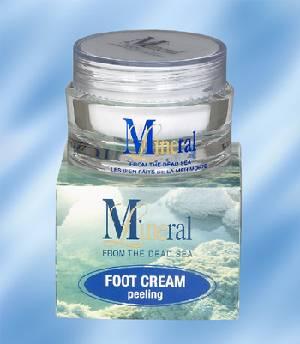 Parabens and Sulfates in Beauty Products”>
Parabens and Sulfates in Beauty Products”>
Understanding Parabens and Sulfates in Beauty Products
When delving into the ingredients list of your favorite beauty products, you may often encounter parabens and sulfates. These components have sparked a mix of concern and curiosity among consumers. Parabens, primarily used as preservatives, extend the shelf life of cosmetics by preventing the growth of harmful bacteria and mold. Sulfates, on the other hand, are surfactants responsible for the lathering effect in shampoos and cleansers.
While both ingredients serve functional purposes, they have also raised questions about potential health impacts. Critics argue that parabens may mimic estrogen, potentially disrupting hormone function, while sulfates can strip natural oils, leading to dryness or irritation. However, it’s essential to weigh these concerns with scientific research, which often indicates that these ingredients are safe in the concentrations used in beauty products. Consider the following when making a decision:
- Skin Type: Individuals with sensitive or dry skin might prefer sulfate-free options to avoid irritation.
- Personal Preference: Some choose paraben-free products due to personal beliefs or lifestyle choices.
- Product Efficacy: Evaluate if alternative ingredients provide the same benefits for your specific needs.

Potential Health Implications of Common Additives
When examining the ingredients in beauty products, parabens and sulfates often come under scrutiny due to their widespread use and potential health concerns. Parabens, commonly employed as preservatives, have been linked to hormonal disruptions, although scientific consensus remains divided. On the other hand, sulfates, which are responsible for that satisfying lather in shampoos and cleansers, have been associated with skin irritation in some users. Understanding the potential implications of these additives is crucial for informed decision-making.
- Hormonal Disruption: Some studies suggest that parabens can mimic estrogen, potentially leading to hormonal imbalances.
- Skin Irritation: Sulfates, particularly in sensitive individuals, may cause dryness or irritation.
- Environmental Impact: Both parabens and sulfates have been criticized for their potential effects on aquatic life.
While definitive evidence is still emerging, consumers may choose to seek alternatives that align with their personal health philosophies and skin sensitivities. Awareness and education about these additives can empower individuals to make choices that best suit their needs and lifestyles.

Exploring Alternatives: Natural and Safe Options
For those seeking alternatives to traditional beauty products containing parabens and sulfates, a wealth of natural and safe options are available. Many consumers are turning to products that harness the power of nature, utilizing ingredients that are both effective and gentle on the skin. These alternatives often include botanical extracts, essential oils, and other plant-based ingredients, providing not only nourishment but also a sense of well-being.
Here are some popular natural ingredients to consider:
- Aloe Vera: Known for its soothing and hydrating properties, it’s perfect for sensitive skin.
- Coconut Oil: Offers deep moisturization and a natural glow.
- Shea Butter: Rich in vitamins, it provides excellent skin conditioning.
- Tea Tree Oil: Renowned for its antimicrobial benefits, ideal for acne-prone skin.
- Argan Oil: Packed with antioxidants, it helps to rejuvenate and protect the skin.
Embracing these alternatives not only aligns with a more holistic lifestyle but also supports brands that prioritize sustainable and ethical practices. By choosing products with natural formulations, consumers can enjoy the benefits of beauty without compromise.

Making Informed Choices: Recommendations for Consumers
When navigating the world of beauty products, it’s essential to be informed about common ingredients like parabens and sulfates. These components have sparked debate over their safety and efficacy. Parabens, often used as preservatives, have been scrutinized for potential links to hormonal disruptions, though scientific consensus remains inconclusive. Sulfates, known for their lathering properties in shampoos and cleansers, may strip natural oils, potentially leading to dryness or irritation for sensitive skin types.
- Research Ingredients: Look for products that disclose full ingredient lists and consider alternatives that use natural preservatives.
- Know Your Skin Type: If you have sensitive or dry skin, you might prefer sulfate-free options to maintain moisture.
- Consult Professionals: Seek advice from dermatologists or skincare experts to tailor your choices to your individual needs.
Ultimately, the decision to avoid these ingredients should be based on personal preferences and specific skin concerns. Staying informed and understanding the potential effects can help you make choices that align with your beauty goals and lifestyle.

